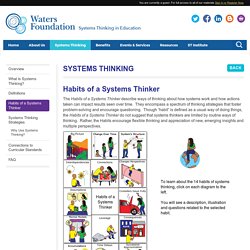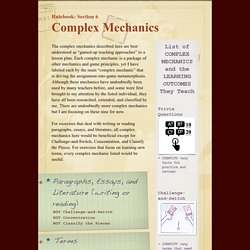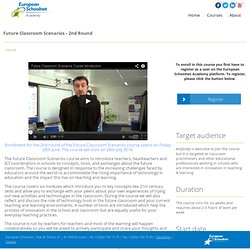

Habits of a Systems Thinker - Waters Foundation. The Habits of a Systems Thinker describe ways of thinking about how systems work and how actions taken can impact results seen over time.

They encompass a spectrum of thinking strategies that foster problem-solving and encourage questioning. Though “habit” is defined as a usual way of doing things, the Habits of a Systems Thinker do not suggest that systems thinkers are limited by routine ways of thinking. Rather, the Habits encourage flexible thinking and appreciation of new, emerging insights and multiple perspectives. Habits of a Systems Thinker To learn about the 14 habits of systems thinking, click on each diagram to the left. You will see a description, illustration and questions related to the selected habit.
Seeks to understand the big picture A systems thinker “steps back” to examine the dynamics of a system and the interrelationships among its parts. Questions to ask… “How can I maintain balance between the big picture and important details?” Observes how elements within. COMPLEX MECHANICS. The complex mechanics described here are best understood as “gamed-up teaching approaches” to a lesson plan.

Each complex mechanic is a package of other mechanics and game principles, yet I have labeled each by the main “complex mechanic” that is driving the assignment-into-game metamorphosis. Although these mechanics have undoubtedly been used by many teachers before, and some were first brought to my attention by the listed individual, they have all been researched, extended, and classified by me. There are undoubtedly more complex mechanics but I am focusing on these nine for now. For exercises that deal with writing or reading paragraphs, essays, and literature, all complex mechanics here would be beneficial except for Challenge-and-Switch, Concentration, and Classify the Pieces.
For exercises that focus on learning new terms, every complex mechanic listed would be useful. A quick look at these complex mechanics reveals how some of the simple mechanics are propping them up. None? Ett pedagogiskt möte med Timperley. Helen Timperley är professor i pedagogik på pedagogiska fakulteten vid University of Auckland i Nya Zeeland.

Helen Timperley har ett perspektiv på professionellt lärande som är till för att motivera lärare vilket i sin tur ska ledda till stora förbättringar i elevers lärande, särskilt i traditionellt lågpresterande elevgrupper. Den största utmaningen är att alla lärare måste börja se det som en naturlig och vardaglig del av sitt arbete att ägna sig åt lärande och reflektion. Hur går det till? Timperleys tankar är att lärare aktivt måste arbeta med att utveckla sitt eget lärande för att på bästa möjliga vis kunna förmedla kunskap vidare till sina elever.
Detta måste struktureras och stödjas av rektorer/ledning på skolorna. Utifrån dessa tankar har Timperley skapat en cirkel på vilken lärare kan finna stöd och en utgångspunkt där läraren får ta ett steg tillbaka och se på sin undervisning ”utifrån”. Detta möte ledde till en övning. Planeringen bygger på Timperleys cirkel kring lärande. Sweden Academy. Webbaserad kurs om bedömning. European Schoolnet Academy: Future Classroom Scenarios - 2nd Round. Enrollment for the 2nd round of the Future Classroom Scenarios course opens on Friday 20th June.

The course will start on 28th July 2014. The Future Classroom Scenarios course aims to introduce teachers, headteachers and ICT coordinators in schools to concepts, tools, and exchanges about the future classroom. The course is designed in response to the increasing challenges faced by educators around the world to accommodate the rising importance of technology in education and the impact this has on teaching and learning. The course covers six modules which introduce you to key concepts like 21st century skills and allow you to exchange with your peers about your own experiences of trying out new activities and technologies in the classroom. During the course we will also reflect and discuss the role of technology tools in the future classroom and your current teaching and learning environments.
At the end of the course you will receive an electronic certificate of participation.